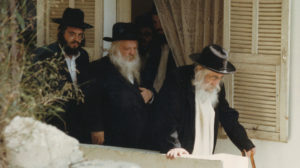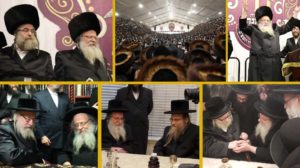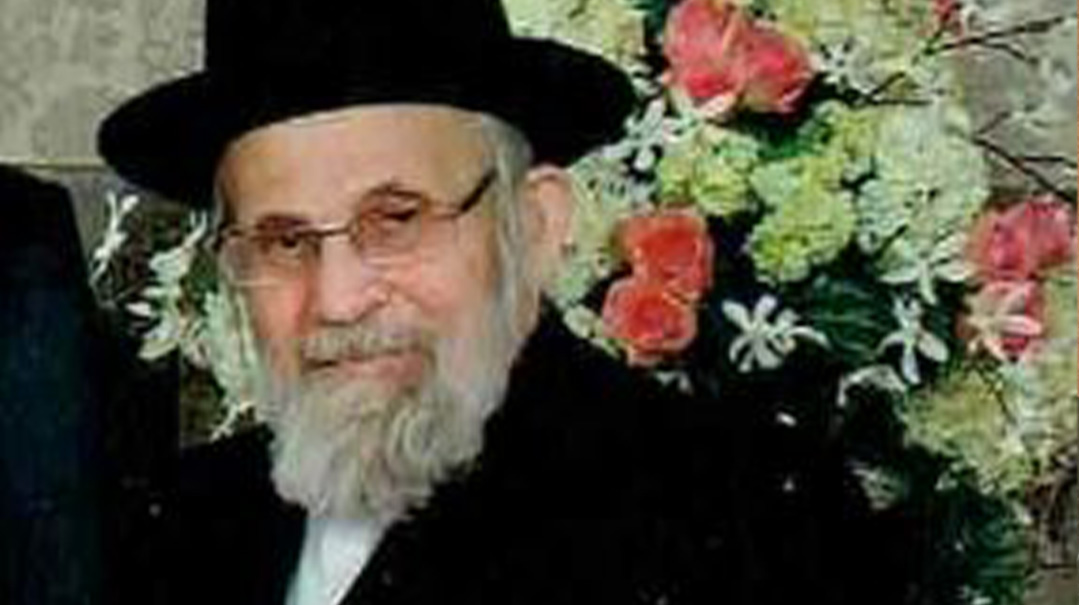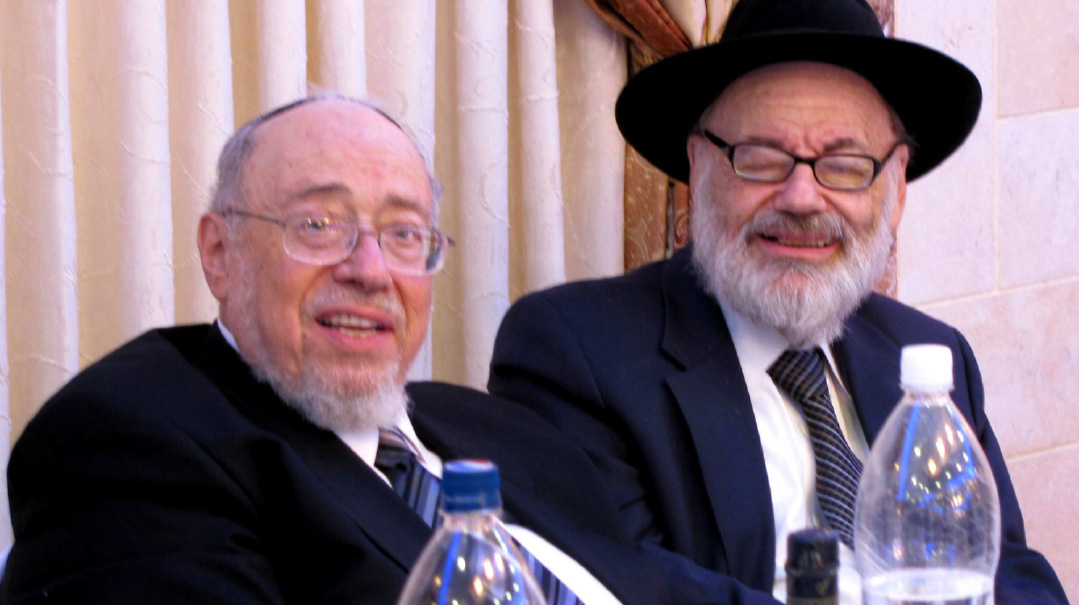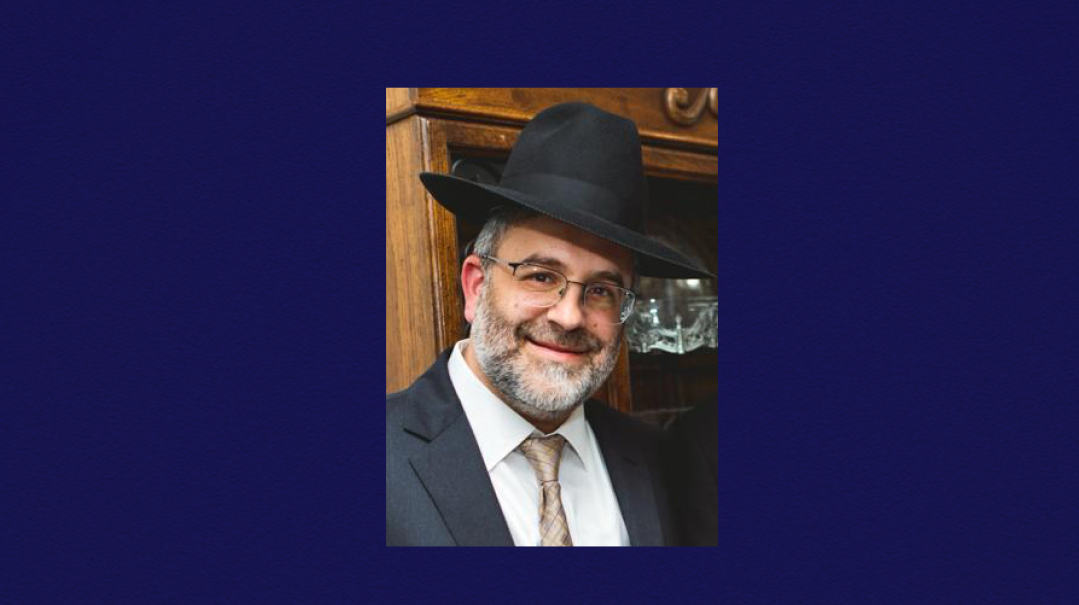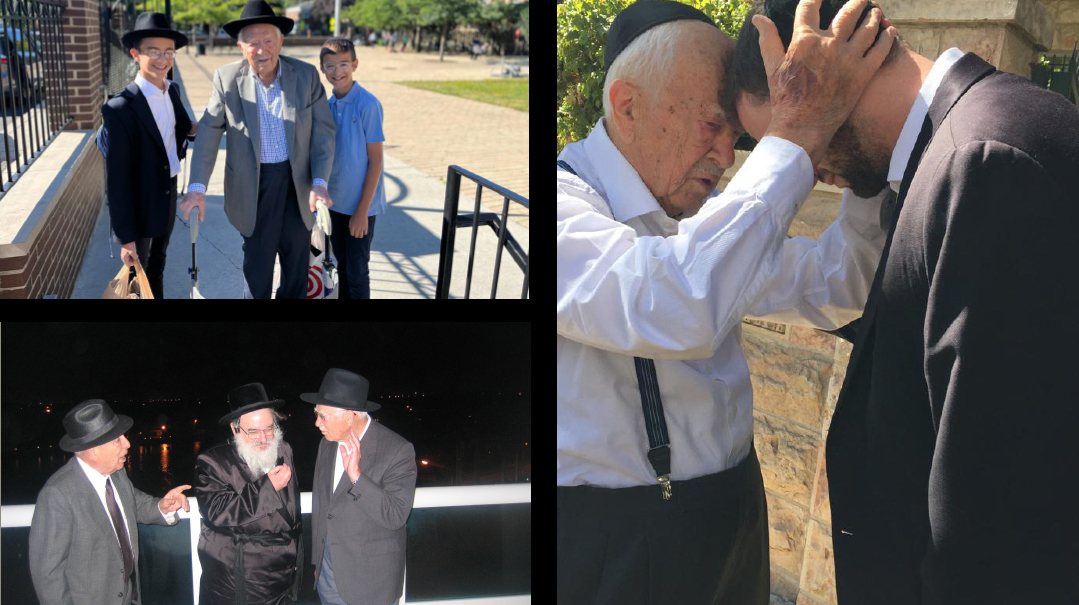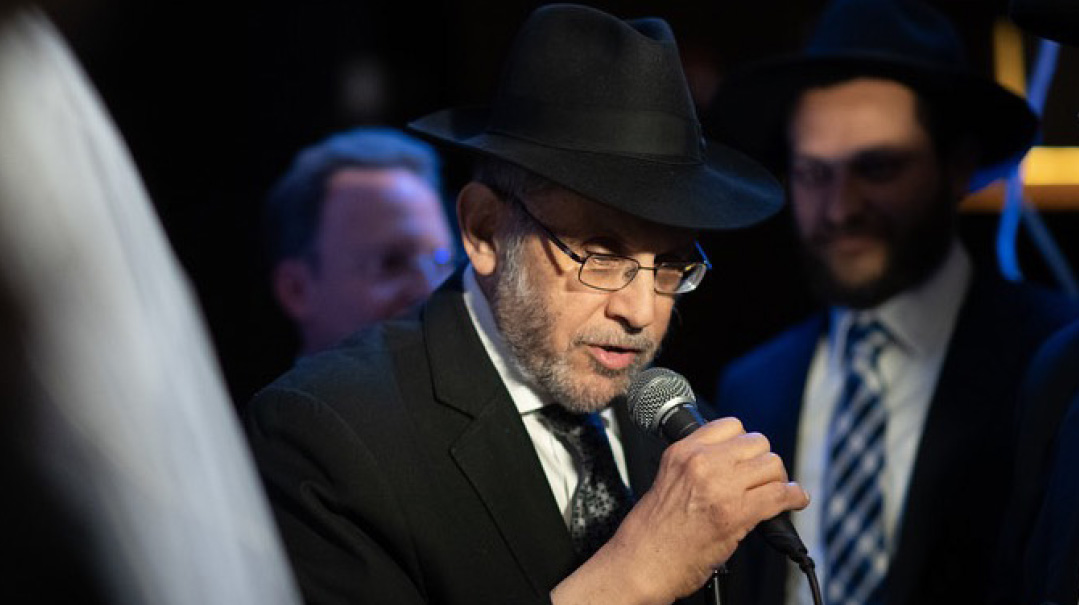Reb Leib Bridged Heaven and Earth
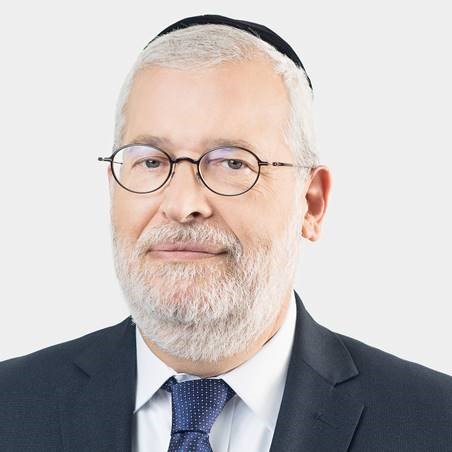

I first met Reb Leib Mintzberg, venerated head of the Yerushalmi Masmidim kehillah who passed away last week, when I was still a bochur learning in Yeshivas Chevron. We lived in Har Nof at the time, at 2 Shaulson Street, and one of Reb Leib’s eminent talmidim lived next door. We would often meet in shul and exchange ideas on the parshah, and in time, it became somewhat of a ritual: I would tell him some brilliant Torah, and he would respond, “Now I’ll tell you what Reb Leib said about that in the shiur.” And Reb Leib always knew how to challenge, how to pique interest, to illuminate a subject in a new and original light. And that’s how I was introduced to Reb Leib’s Torah and his personality — it was only natural that I would be captivated by him.
The more I was exposed, the more amazed I was by the unusual combination of intellectual depth, proficiency in chassidus and Kabbalah, as well as the lamdonishe works of the Acharonim. At the same time he was down to earth, warm, and gentle, with a natural gift for imparting basic fundamentals of emunah and avodas Hashem in a language that everyone could absorb and internalize. When Reb Leib would begin to speak, the concepts he introduced seemed almost banal in their simplicity, but slowly, brick by brick, he built an impressive structure of breadth and depth in Torah and avodas Hashem.
Reb Leib never sufficed with just offering brilliant ideas, and he never tried to impress others with brilliant and creative analysis. When he approached a sugya, the first thing he wanted to find out was what that sugya comes to teach us, how that mitzvah gives instruction about the relationship between us and Hakadosh Baruch Hu. He taught us to tune our ear, to really listen to the message the Torah seeks to share with us. In every subject he touched, it was always about finding the “l’maaseh,” the practical — how to connect the depths of it to our everyday lives, how to approach mitzvah observance with the right attitude toward the Creator. Reb Leib was a lamdan, a scholar, but first and foremost, he was an eved Hashem, a ben Melech — and that’s what he tried to imbue his students with most of all.
Reb Leib, one of the most creative and original thinkers I’ve met, had a noteworthy fundamental approach to the study of Chumash. A basic principle of this approach was how each of the five Chumashim has one central theme, intended to illuminate a particular facet of Hakadosh Baruch Hu’s relationship with us, and in the avodas Hashem that is thus mandated. Toward this end, Reb Leib would uncover layers of the mitzvos according to the Chumash in which they appear, with a special emphasis on the mitzvos that are repeated a number of times, as Chazal say (Menachos 10a): “Every parshah that is stated and then repeated is only in order to teach something new.”
Reb Leib was famous for his explanations on those “new” things. For example, he would talk about how the mitzvah of Shabbos is mentioned in Chumash Bereishis in the context of the creation of the world; in Shemos, in the context of Yetzias Mitzrayim; in Vayikra, in the context of the holiness of Shabbos; in Bamidbar, in the context of the Shechinah resting in the camp of Bnei Yisrael; and in Devarim, in the context of how it relates to each of us. Another example that comes to mind is in the injunction against retzichah, murder. In Bereishis, the context is in the violation of the Tzelem Elokim. In parshas Mishpatim, it’s in the legal context of harming another person. Accordingly, the Torah will switch off using the word “adam” with the word “ish” or “nefesh” or “dam naki” — and Reb Leib would delight in plumbing the layers of meaning for every discrepancy.
This combination of simplicity and depth, this ability to connect Heaven and Earth — did not rise out of nothing. It began decades ago in Yeshivas Hamasmidim, founded in Jerusalem’s Batei Ungarin after the founding of the State by Rabbi Yosef Eichler who wanted to create a Torah framework that would prevent bochurim from landing on the streets. Reb Leib, who became an orphan at age five when his father was killed by a mortar rocket during the War of Independence and who was then raised by Dayan Rav Yitzchak Reisman, was placed as the head counselor of the Masmidim chaburos when he was 16 — and he quickly turned the original framework for afternoon occupation into a thriving community. The bochur, and later young avreich (at age 18 he married Rebbetzin Chana, daughter of Rav Eliezer David Brand), knew how to identify the potential hidden in the community he had built. The path that he forged for them in avodas Hashem grew naturally out of those traits that so characterized the residents of Yerushalayim — simplicity and modesty — but he laced them with a loftiness and depth in relation to a Jew’s connection to avodah and to Torah and mitzvos. Reb Leib walked among them as an equal — “Leibel” they would call him, without any honorifics or prefixes to his name. But he also knew how to challenge his students and to turn out generations of genuine Torah scholars.
For the Masmidim kehillah, the high point of the year was Shabbos parshas Lech Lecha, when the entire community would gather in Meron for an experience that went far beyond a community bonding event. The entire Shabbos, from Kiddush through Seudah Shlishis, revolved around the avodah of Shabbos, and Reb Leib, with his overflowing soul and razor-sharp mind, was able to connect his tzibbur to those lofty Torah teachings and bring them down into “real life.” At midnight, the community would gather at the tziyun of Rashbi and here — once a year — Reb Leib would reveal to his talmidim a little bit of the layers of Torah that formed his own unique inner world and served as the backdrop for the profundity of thought that characterized him.
I saw him for the last time two weeks ago, on Thursday of parshas Lech Lecha, when I visited him in the hospital after he’d undergone surgery. When I mentioned that it was Shabbos Lech Lecha that week, he smiled and said there was a precedent: Two years earlier the weekend had been postponed to parshas Vayishlach after he felt unwell. This year, he said, b’ezras Hashem, he’d join the kehillah in Meron in one of the coming weeks.
I told him how sorry I was that I didn’t have an opportunity to bring my son Yishai to him before his bar mitzvah, which was the previous week. Reb Leib said that he’d already prepared a gift for him, and invited me to bring Yishai the following week — an invitation that, tragically, we never fulfilled.
Our conversation picked up where we left off when we’d met Motzaei Rosh Hashanah, when we’d engaged in a discussion about the Kingship of Hashem. We spoke about the fact that the description “Melech” hardly appears explicitly in the Torah, and even in the Neviim it is rarely used. We then spoke about the language established by Chazal — “Melech Ha’olam” — indicating how Hashem as “Melech” is intrinsically tied to Him as “King of the entire world.” Reb Leib then told me to peruse Tehillim 145, Tehillah L’Dovid (the main text of Ashrei). He called it Shir Hameluchah.
“This perek is the Shir Hameluchah,” he said. “What is Kingship? Compassionate and merciful, Hashem is good to all, all eyes turn to Him, He supports the fallen... the entire perek is about this all-emcompassing goodness. Only in the end of the perek do we mention ‘v’es kol haresha’im yashmid,’ indicating that the Kingship of Hashem is first and foremost compassion and mercy.”
When Reb Leib said these words, they were not just empty sentences. His sweet voice, his gentle eyes — every single limb in his body conveyed all the warmth and sincerity with which he was able to infuse those words. Anyone who knew Reb Leib could see how Torah, and his love for Hakadosh Baruch Hu, flowed through his every vein. He always spoke about the need to emphasize to our generation the love that Hakadosh Baruch Hu has for Klal Yisrael — and those of us who merited to know Reb Leib could always see how that love illuminated his face, his speech, and his every action.
We parted with his brachah — effusive and illuminating like only Reb Leib’s brachah could be. I never dreamed this would be our last meeting.
It’s hard to speak about the great loss to our community with the passing of this very special person who walked humbly in our midst. Our consolation, though, is the powerful, treasured legacy he has left for us in his writings, in which he paved a path for us in serving Hashem as children of the King.
(Excerpted from Mishpacha, Issue 733)
Oops! We could not locate your form.





